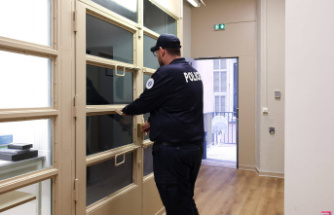The time change takes place on the night of Saturday March 30th to Sunday March 31st. Be careful, you will then have to adjust the hands of your watch, and there is a trick to avoid getting the wrong direction.
An hour more or an hour less? It's an eternal question that comes up when the time changes. This year, the changeover to summer time will take place on the night of Saturday March 30 to Sunday March 31. At two in the morning, it will actually already be three o'clock. An hour of sleep will be lost but the sun will now set later. For early sleepers, you will have to set the alarm at the new time before going to bed, while for Saturday partygoers, the evening may pass a little faster. Don't panic, as Monday April 1st is a public holiday, there will be one more day to recover from this time change. Some will even continue with vacation a few days later, from April 6.
If modern devices, such as the telephone, the internet box, the computer, will switch to the new time on their own, you must however think about changing the time on the watches but also on the oven or microwave, as well than the pendulums. It is also necessary to check on vehicles. To remember which way to turn the hands, there is a simple mnemonic. To do this, you must keep in mind that each time change takes place on the last Sunday in October and the last Sunday in March. Next, we need to take a closer look at the spelling of these two months. At the end of the word October, the "re" can make you think of moving the hands back one hour. While the last weekend of March, the "a" of March but also the "av" of the month of April which is arriving, remind us that it is appropriate to move the hands forward.
Otherwise, the bed trick also works very well. So, just remember that with the arrival of summer and the heat, the desire to snuggle up under your duvet is less strong and therefore the night is shorter. Conversely, when winter approaches, why not stay in bed a little longer, even an hour longer?
These little techniques could still be useful in the years to come. The desire to eliminate the time change, once mentioned, no longer really seems to be on the agenda. Since its creation by decree following the oil crisis of 1975, the objective has been to save energy by aligning activity hours with sunlight hours and thus reduce electricity consumption. According to the French Agency for the Environment and Energy Management, this process would still be relatively effective since it would save the equivalent of the annual consumption of 800,000 households.











